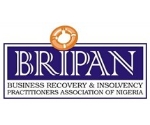Is it Mandatory for Private Companies to File Annual Returns with the Financial Reporting Council of Nigeria?
The Financial Reporting Council of Nigeria (FRCN) is a federal agency established under the Financial Reporting Council of Nigeria Act, No. 6 of 2011. It is tasked with setting accounting and financial reporting standards, monitoring compliance with auditing and accounting standards, and issuing and regulating the Code of Corporate Governance.
Over time, questions emerged regarding whether businesses are statutorily required to file annual returns with the FRCN. This issue was the subject of litigation, culminating in a court decision that addressed the matter. In the sections that follow, we will examine the case in detail and explore its broader implications.
Suit No. FHC/L/CS/1430/2012. Between Eko Hotels Ltd v FRCN
In this suit, the Financial Reporting Council of Nigeria (FRCN), relying on its statutory mandate, issued a notice to Eko Hotels Limited, directing the company to register and file its annual returns for the years 2011 and 2012. In response, Eko Hotels Limited contended that it is neither a public company nor a public interest entity and, therefore, is not obligated to register with or file annual (or any) returns to the FRCN. Subsequently, Eko Hotels Limited initiated a suit before the Federal High Court to challenge the FRCN’s directive.
The Federal High Court, in its judgment, held that the powers of the Financial Reporting Council of Nigeria (FRCN), as outlined under its enabling Act, are limited to the regulation of public interest entities and public companies. The Court made it clear that these powers do not extend to private companies such as Eko Hotels Limited. Consequently, the FRCN has no statutory authority to compel private companies to register or file annual returns with it.
The position of the Court has now been reflected in the provisions of the FRCN Amendment Act 2023. Public interest companies are limited to:
- Governments and government organizations.
- Listed entities on any recognized exchange in Nigeria.
- Non-listed entities that are regulated.
- Public limited companies.
- Private companies that are holding companies of public or regulated entities.
- Concession entities.
- Privatized entities in which the government retains an interest.
- Entities engaged by any tier of government in public works with an annual contract sum of N1 billion and above and settled from public funds.
- Licensees of the government; and
- All other entities with an annual turnover of N30 billion and above.
Following the judgment of the Federal High Court in the referenced suit, private companies are not required to register with or file annual returns to the Financial Reporting Council of Nigeria (FRCN). To date, there is no known appeal filed by the FRCN challenging this decision.
This decision reaffirms the principle that regulatory agencies must strictly act within the bounds of the powers conferred upon them by their enabling statutes, and it provides significant clarity for private entities operating within Nigeria regarding their compliance obligations under the Financial Reporting Council of Nigeria Act.
Berkeley Legal is a leading full-service business law firm in Nigeria. We provide a comprehensive and sophisticated range of specialized and personalized legal services that are designed to meet the various needs of a highly diversified local and international businesses.
If you want to know more about compliance with FRCN, registration and filing of annual returns, contact Berkeley Legal at info@berkeleylp.com
The information provided in this article is for general informational purposes only and does not constitute legal advice.







